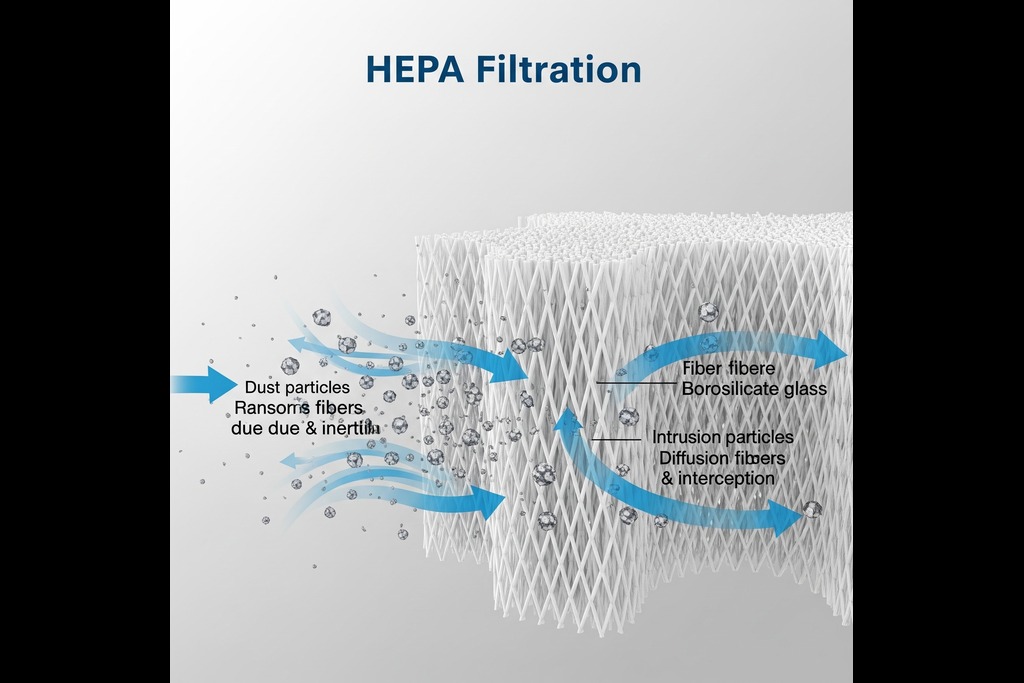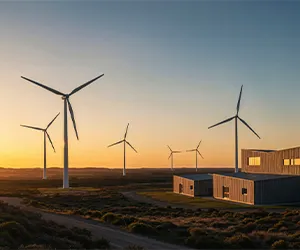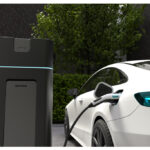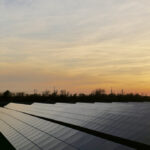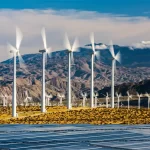A Complete Guide to HEPA Filters: How They Work and Why They Matter
In today’s increasingly polluted environment, maintaining clean indoor air has become a health priority. Whether you’re fighting off seasonal allergens, reducing airborne germs, or simply aiming for cleaner air in your home or workplace, High-Efficiency Particulate Air (HEPA) filters are a go-to solution. But what is HEPA filtration, really? How do these filters work, and why are they so effective? In this detailed guide, we’ll break down everything you need to know about HEPA filter meaning, how they function, their benefits, and where they’re most useful.
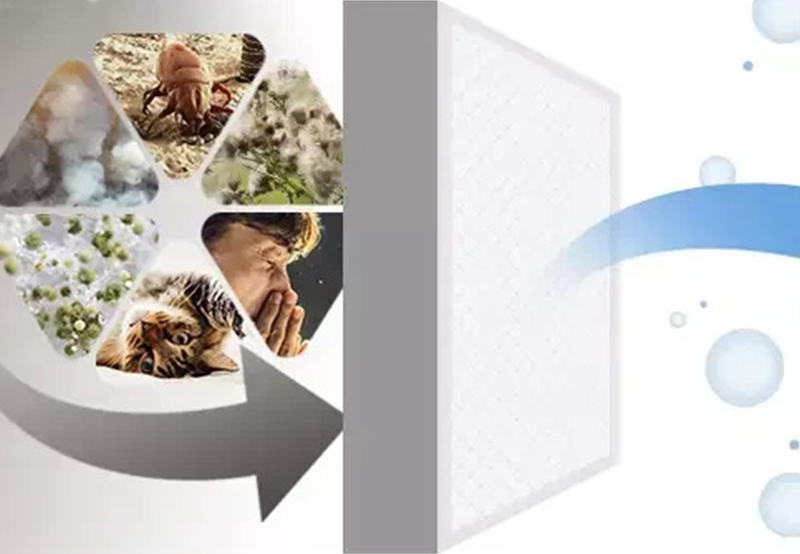
What is HEPA Filtration?
To start with the basics, HEPA filter meaning refers to a mechanical air filter that works by forcing air through a fine mesh that traps harmful particles such as pollen, pet dander, dust mites, and tobacco smoke. HEPA refers to High-Efficiency Particulate Air and such filters are regulated to high standards of efficacy by authorities and agencies such as the U.S. Department of Energy.
Officially, to be classified as a true HEPA filter, it should only capture at least 99.97 percent of the air-borne contaminants that have a diameter of 0.3 microns. Such particles are exceptionally difficult to trap and the standard duplicates all the more striking. To put it into perspective, a human hair is perhaps 50-70 microns in diameter so we are talking about really small pollutants.
How Do HEPA Filters Work?
If you’re wondering how HEPA filters work, the answer lies in their dense network of fibers, typically made from glass or synthetic materials. As air passes through the filter, pollutants are captured using three primary mechanisms:
- Interception: Particles follow the airflow and are captured when they come close enough to a fiber to stick to it.
- Impaction: Larger particles can’t follow the curved pathways of the air and crash directly into fibers.
- Diffusion: The tiniest particles move erratically (Brownian motion), increasing the chance they’ll collide with and stick to a fiber.
Unlike standard filters that rely solely on mesh size, HEPA filters use these combined strategies to trap a wide range of particle sizes more effectively.
HEPA Filter Efficiency Explained
One of the most appealing aspects of HEPA technology is HEPA filter efficiency. These filters can remove nearly all airborne contaminants, especially those that aggravate allergies, asthma, and respiratory conditions.
Here’s how HEPA filter efficiency breaks down:
- 99.97% filtration rate for particles ≥ 0.3 micron.
- Effective against: dust, mold spores, pet dander, bacteria, smoke, and some viruses
- Improved indoor air quality: by reducing harmful particulates
- Performance doesn’t drop quickly if maintained properly
However, it’s important to distinguish between True HEPA filters and HEPA-type or HEPA-like filters. The latter may not meet the 99.97% efficiency standard and can mislead consumers. Always check for verified certification and standards when purchasing a filter.
HEPA Filter Benefits: Why You Should Care
So, what are the HEPA filter benefits? There are numerous—particularly if you care about indoor air quality and health. Here are some good reasons why HEPA filters are a home, office, and health care essential:
1. Allergy Relief: HEPA filters capture typical allergens such as pollen, pet dander, and dust mites. This is particularly beneficial for those with hay fever or pet allergies.
2. Cleaner Breathing Environment: HEPA filters eliminate smoke, airborne particles, and bacteria so that there is cleaner flesh to breathe, which is good especially in cases of children, elderly people, and other individuals whose immunity is compromised.
3. Odor Reduction: While HEPA filters are not intended specifically for gases, when combined with activated carbon filters, they eliminate unpleasant odors from cooking, pets, or chemicals.
4. Hospital-Grade Protection: Utilized in hospitals and clean rooms, HEPA filters capture airborne pathogens, limiting the transmission of bacteria and viruses.
5. Dust Control: HEPA filters do a great job of picking up household dust, which not only makes your area cleaner but also cuts down on the wear and tear of electronics and appliances.
Applications of HEPA Filtration in Daily Life
HEPA filtration is not exclusive to air purifiers alone. Its adaptability has cemented it as an essential element in various industries:
1. Air Purifiers: One of the most prevalent consumer applications—HEPA-filtered air purifiers are employed indoors or in offices to cut down on indoor air pollution.
2. HVAC Systems: Certain heating, ventilation, and air conditioning systems utilize HEPA filtration to clean up the air at a larger scale.
3. Vacuum Cleaners: HEPA-filtered vacuums capture allergens while cleaning rather than discharging them into the atmosphere.
4. Automobiles: Certain vehicles now have HEPA cabin filters to enhance in-car air quality, particularly in urban settings.
5. Healthcare Facilities: Hospital ICUs, operating rooms, and isolation rooms use HEPA filtration systems to prevent infection.
Limitations of HEPA Filters
While HEPA filter benefits are impressive, it’s essential to acknowledge their limitations:
- Not effective against VOCs: Volatile Organic Compounds, which are gases from paint, glue, or cleaning agents, aren’t filtered out.
- Airflow resistance: Because of their dense structure, HEPA filters can restrict airflow, requiring more powerful fans.
- Maintenance required: Clogged filters reduce efficiency. Regular replacement is necessary to maintain performance.
For best results, many air filtration systems pair HEPA with pre-filters (for larger particles) and activated carbon filters (for odors and gases).
How to Choose the Right HEPA Filter
Now that you know what is HEPA filtration, how do HEPA filters function, and the advantages of them, how do you select the right one? Here are a few guidelines:
1. Look for “True HEPA”: Always opt for products labeled “True HEPA” rather than “HEPA-type” or “HEPA-like” to ensure you’re getting certified performance.
2. Check the CADR Rating: Clean Air Delivery Rate (CADR) tells you how quickly the device can clean the air. Higher numbers mean better performance.
3. Room Size Compatibility: Choose a unit that matches your room size. A filter too small for your space won’t deliver efficient results.
4. Maintenance Schedule: Opt for a system that makes it easy to check and replace filters. HEPA filters usually need replacement every 6 to 12 months, depending on usage.
5. Noise Level: If used in a bedroom or quiet space, ensure the filter runs quietly, especially at night.
HEPA Filters & COVID-19: What You Should Know
Post-pandemic, there’s increased awareness around airborne viruses. While HEPA filters can capture particles as small as many viruses, their effectiveness also depends on the virus’s mode of travel—usually in respiratory droplets, which HEPA can trap.
This makes HEPA filters a valuable tool in mitigating airborne transmission in enclosed spaces like classrooms, offices, and healthcare facilities.
The Bottom Line: Why HEPA Filtration Matters
There has never been a more pressing need for clean indoor air. HEPA filters have become a reliable, scientifically supported solution as pollution levels rise and people become more conscious of the negative health effects of indoor air quality.
Let’s recap what we’ve learned:
- What is HEPA filtration? It’s a system that removes 99.97% of airborne particles as small as 0.3 microns.How do HEPA filters work? Through a combination of interception, impaction, and diffusion using densely woven fibers.
- HEPA filter efficiency is among the highest in consumer-grade filtration.
- HEPA filter benefits include relief from allergies, cleaner air, reduced dust, and better health.
- These filters are used everywhere—from your home to hospitals—showing their wide-ranging value.
You can invest in your indoor air quality more wisely if you know how they work and the many advantages they offer. A HEPA filter is an easy yet effective way to reduce allergens, protect your family, or breathe cleaner air.
Frequently Asked Questions (FAQs)
HEPA filtration is a process that involves using a High-Efficiency Particulate Air (HEPA) filter to remove airborne particles from the air. These filters capture at least 99.97% of particles that are 0.3 microns in diameter. It is commonly used in air purifiers, vacuums, and HVAC systems to improve indoor air quality.
The main difference is efficiency. A True HEPA filter must meet the 99.97% efficiency requirement for particles 0.3 microns in size. In contrast, HEPA-type filters or HEPA-like filters do not meet the same stringent standards, and may not provide the same level of filtration.
HEPA filters can capture airborne viruses that are attached to larger particles or droplets, such as those produced during coughing or sneezing. However, they are not 100% effective at filtering out all types of viruses. In environments like healthcare settings, additional air purifiers and ventilation systems may be used to ensure maximum protection.
Absolutely! HEPA filters are suitable for use in various environments, including homes, offices, and even healthcare facilities. In home settings, they can be used in air purifiers, vacuums, or HVAC systems to improve indoor air quality. In offices, they help reduce allergens and create a more comfortable work environment.
Most HEPA filters need to be replaced every 6 to 12 months, depending on the manufacturer’s guidelines, usage, and the level of airborne particles in your environment. It’s essential to check your filter regularly and replace it when it becomes clogged to maintain optimal efficiency.

